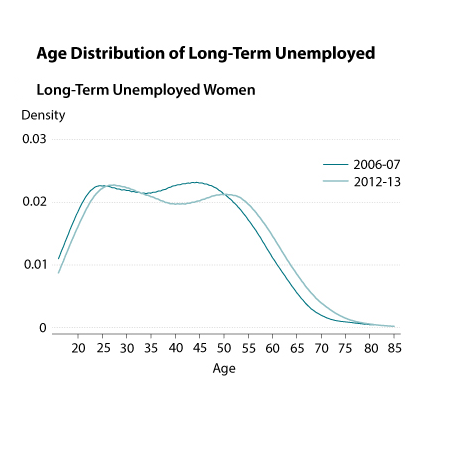Long-Term Unemployment (LTU) is defined as workers in continuous unemployment for 6 months or longer. In the essay "Age and Gender Differences in Long-Term Unemployment: Before and After the Great Recession,” authors Alexander Monge-Naranjo and Faisal Sohail examined the share of unemployed workers in LTU for different age and gender groups over two periods: 2006-07 and 2012-13.
There are important differences in the LTU-to-unemployment ratios across age groups. For example, in 2006-07 the likelihood of older men entering LTU is 9 percentage points higher than for their female counterparts, and in this time period the LTU-to-unemployment ratios are higher for males of all ages. For the 2012-13 period the ratios increased dramatically as the incidence of LTU among the unemployed more than doubled for almost all age groups. However, in the 2012-13 period, women 65 and over are most affected. The LTU-to-unemployment ratio for older women increased from 14 percent to 50 percent, overtaking the incidence of LTU for men of the same age.
Men and women of all ages experienced a rise in LTU after the Great Recession, but the worsening of labor market conditions in the 2012-13 period seems to have hit older female workers much harder.
